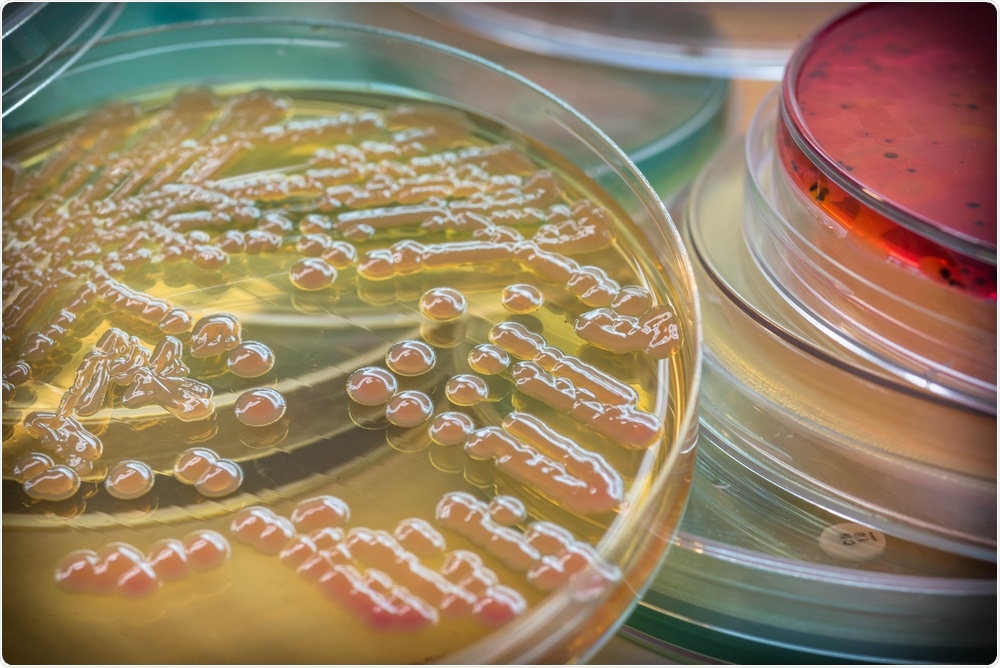Researchers in China have made an important discovery that explains the confusing case of a 27-year old man who had a history of becoming intoxicated without actually drinking alcohol.
The man had a rare condition called “auto-brewery syndrome,” where microflora in the gut ferments carbohydrates from food into an intoxicating level of alcohol. The man was even finding he would become tipsy or pass out after drinking non-alcoholic fizzy drinks.
 Sirirat | Shutterstock
Sirirat | Shutterstock
A blood alcohol level of 400 milligrams per deciliter
For a person’s blood alcohol level to reach around 400 milligrams per deciliter, they would usually need to drink about 15 shots of 40% whiskey.
However, in this patient’s case, doctors noticed that his blood alcohol soared to this level simply after eating carbohydrates and fruit juice.
A few cases of auto-brewery syndrome have been investigated previously and those studies had identified an overabundance of the fungus Saccharomyces cerevisiae as the culprit.
However, for the current patient, pediatrician Jing Yuan (Capital Institute of Paediatrics, Beijing) and colleagues found they needed to search a little harder for the microbe that was responsible.
We initially thought it was because of the yeast, but the test result for this patient was negative. Anti-yeast medicine also didn't work, so we suspected [his disease] might be caused by something else.”
Jing Yuan, First Author
The researchers took 14 samples of the man’s feces at different times of day and compared the man’s gut microflora with that of 43 other people who had non-alcoholic fatty liver disease (NAFLD) and a further 48 healthy people.
In most people, the abundance of K. pneumoniae increased by around 0.02 percent over the course of the analysis. However, when the subject was at his most intoxicated, almost 19% of the bacteria in his feces was K. pneumoniae, which is about 900 times more than the usual level.
Isolating strains that could produce significant amounts of alcohol
The researchers then isolated bacterial strains of K. pneumoniae that could generate significant amounts of alcohol in both the presence and absence of oxygen.
Interestingly, they found that both the abundance of these strains as well as their ability to produce alcohol were higher among the patients with NAFLD than among the healthy subjects.
In fact, they found strains of high-alcohol producing K. pneumoniae in up to 60% of patients with liver disease, compared with only 6% of healthy people.
To help confirm the link between K. pneumoniae and fatty liver disease, Yuan and colleagues fed a high-alcohol producing strain of the bacteria to mice.
Just four weeks later, the mice had developed signs of liver damage, whereas control mice that were only fed sugar and yeast did not show any signs of liver damage.
Implications of the study
The findings do not suggest that K. pneumoniae is the main cause of any liver disease that is not linked to alcohol consumption. However, it serves as a good starting point for further investigation.
NAFLD is a heterogeneous disease and may have many causes. Our study shows K. pneumoniae is very likely to be one of them. These bacteria damage your liver just like alcohol, except you don't have a choice."
Jing Yuan, First Author
It is not yet clear exactly how or why the bacteria ferment sugar to this degree in some people but not in others. However, Yuan and colleagues suspect it is responsible for some cases of NAFLD and they intend to investigate its role in liver disease further.
“These results suggest that at least in some cases of NAFLD an alteration in the gut microbiome drives the condition due to excess endogenous alcohol production,” they write in the journal Cell Metabolism.
"Having these bacteria in your gut means your body is exposed to alcohol constantly," says co-author Di Liu from the Chinese Academy of Sciences.
“We want to investigate why some people have high-alcohol-producing strains of K. pneumoniae in their gut while others don’t,” says Yuan.
Fortunately, the initial patient recovered from his auto brewery syndrome once he was placed on a different diet and given antibiotics.
Journal reference:
Yuan, J. et al. (2019). Fatty Liver Disease Caused by High-Alcohol-Producing Klebsiella pneumoniae. Cell Metabolism. https://doi.org/10.1016/j.cmet.2019.08.018